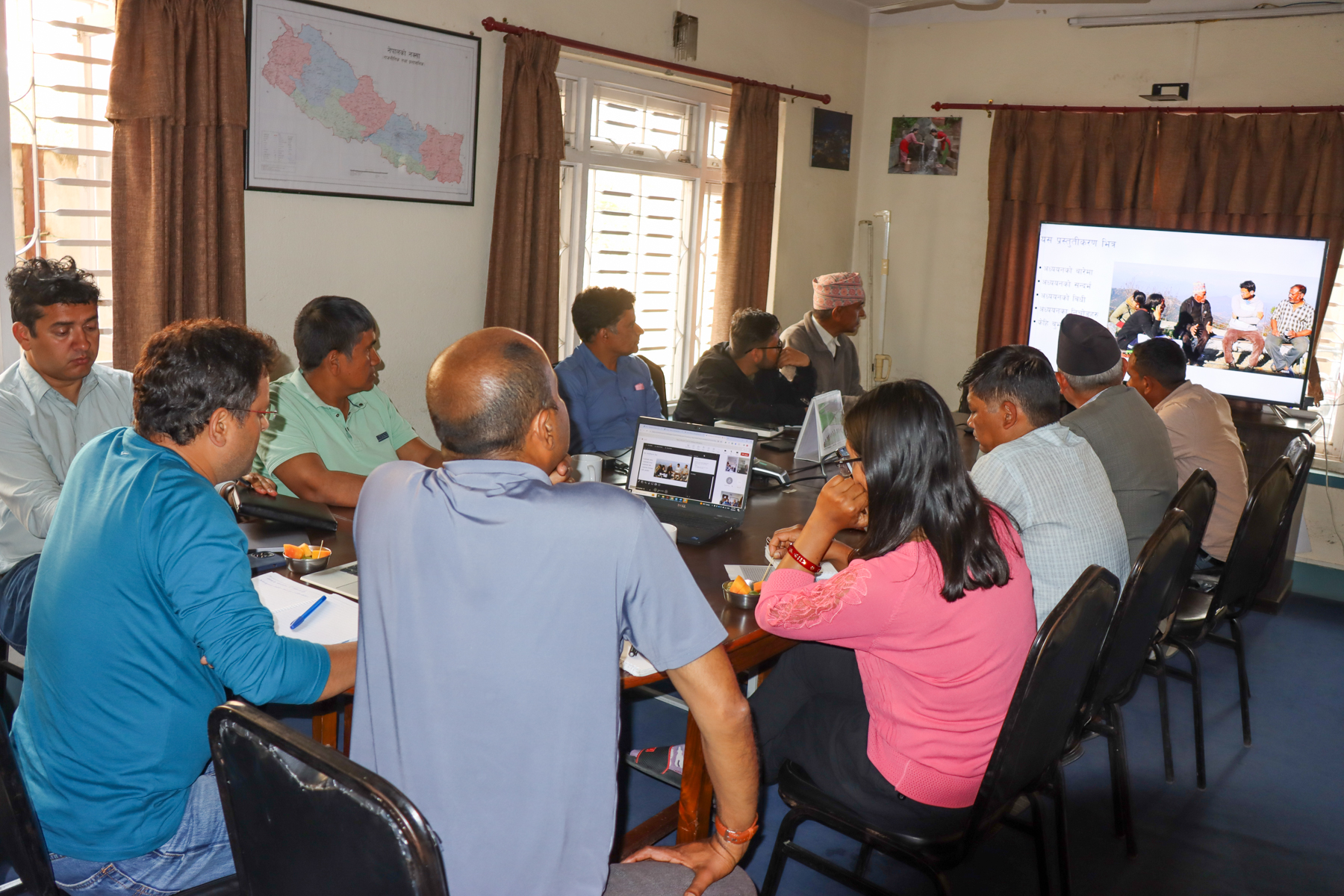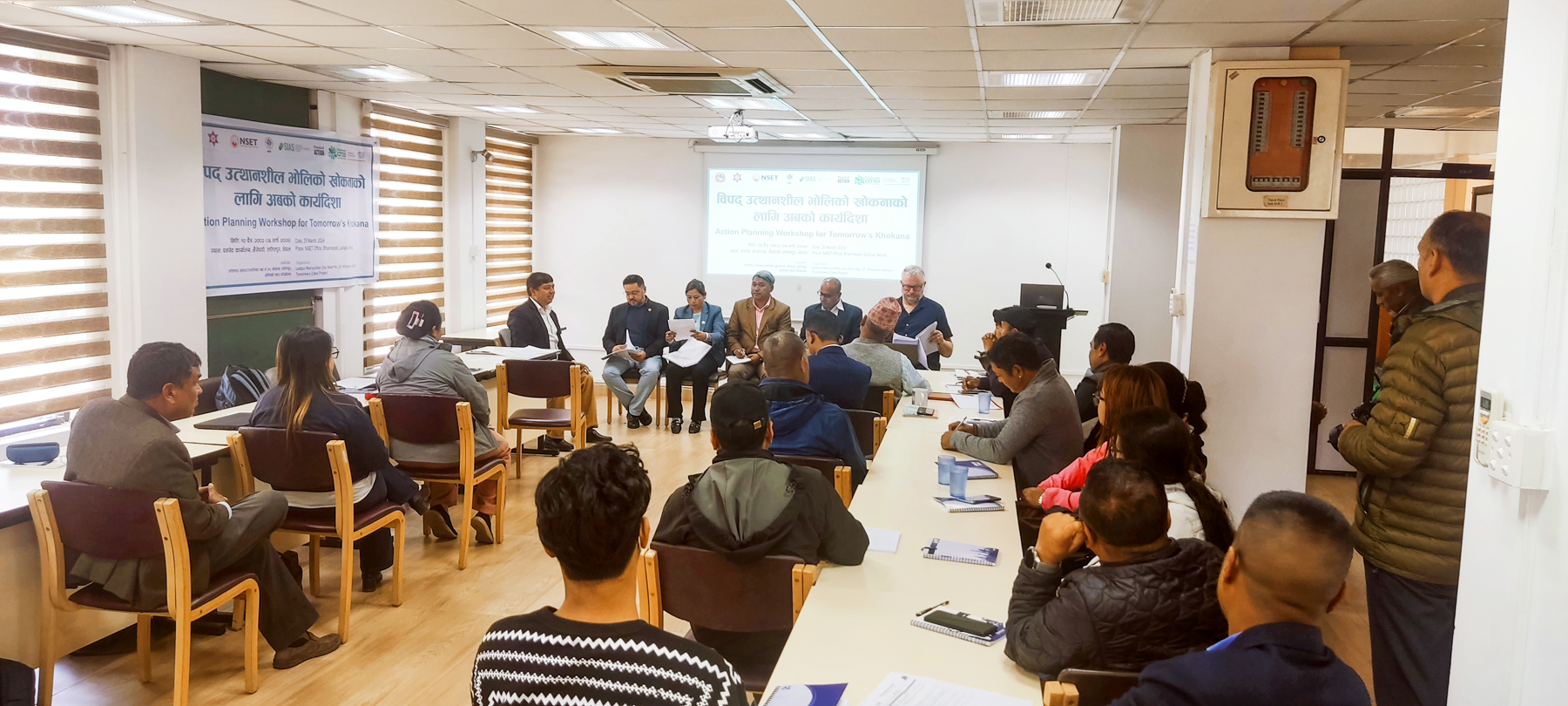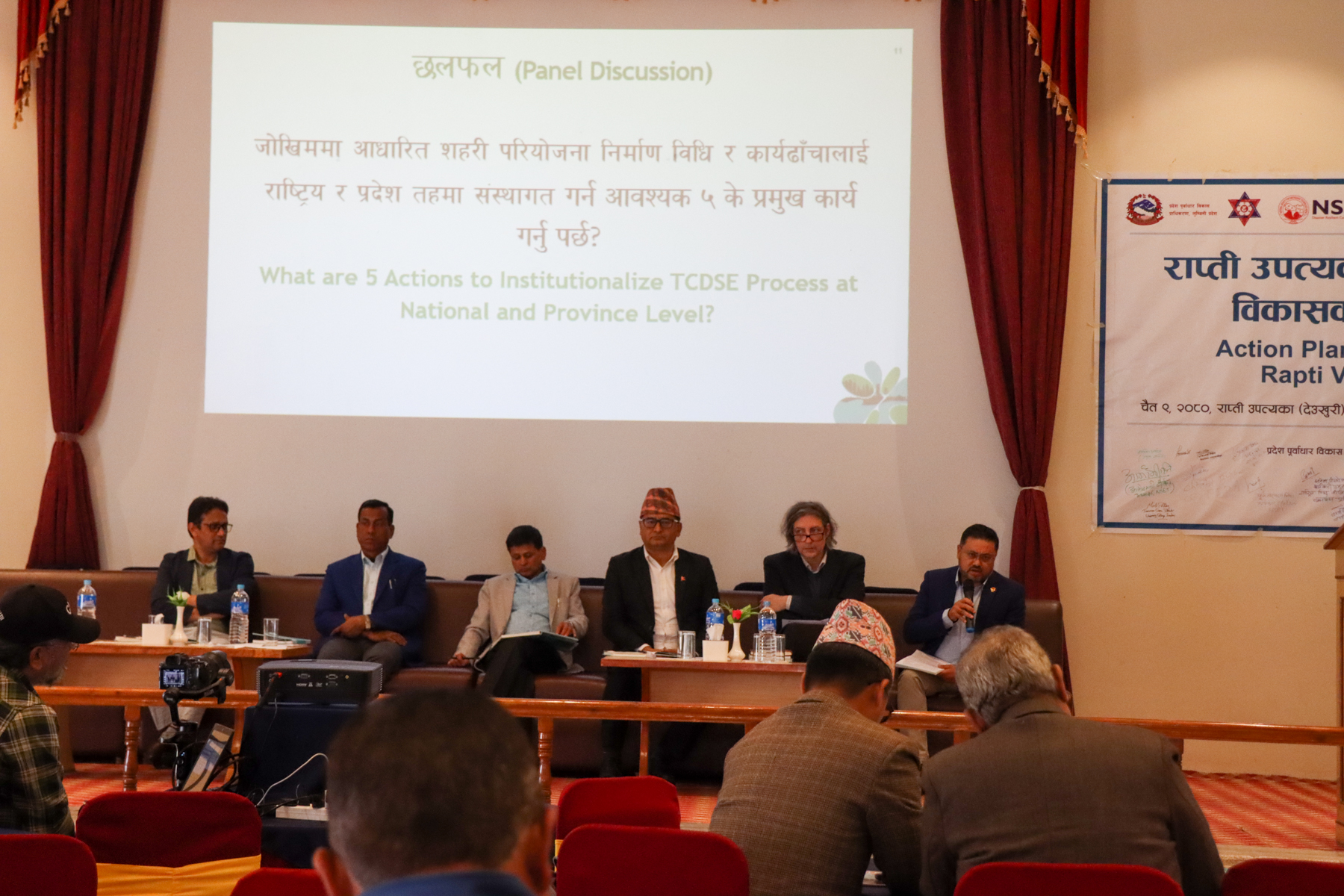As a part of Justclime project, Southasia Institute of Advanced Studies (SIAS) organized a dialogue on “Institutional capability of local governments to COVID-19 response in Nepal” on 10th April 2022 in Kathmandu. The interaction program brought together stakeholders of local government and academic experts with the objective of exchanging experiences gained by the municipalities in response to the COVID-19 pandemic.
At a time when Nepal is decentralizing its state power, the COVID-19 pandemic has created an unprecedented disruption to the way disaster responses are organized at the local level. In this context, the dialogue intended to reflect on the learnings and experiences of the local governments for overall local disaster risk reduction. In the program, the findings of a study by SIAS on the same theme were also presented. A total of 19 participants representing eight municipalities, researchers and experts were present at the dialogue.
Gyanu Maskey, Program Director of SIAS delivered a presentation to disseminate the findings of an ongoing research by SIAS. In the presentation, Ms. Maskey shared the results drawing on the evidence from eight municipalities of Nepal which analyzed the institutional capability of the municipalities in response to COVID-19, focusing on four important aspects: operationalization and exercise of authority; mobilization of financial resources; technical capability for planning and implementation; ability to access and mobilize resources (information and physical assets i.e., infrastructure).
A moderated discussion session by Dr. Dil Khatri, Executive Director, SIAS, followed the presentation. In the session, representatives of each municipality were provided the platform to share their experiences as well as the municipality’s learnings, the implications and challenges in responding to COVID-19 in the local level. Ashok Byanju Shrestha, Mayor of Dhulikhel Municipality shared that though the municipality made every effort for the control and response of COVID-19, insufficient budget was a major issue for more effective response. Adding to the learning of the municipality for future disaster preparedness, he stressed on the importance of integrated and multi disaster preparedness by the local government, separate labs and hospitals for communicable diseases in the local level and updated information, data collection and data portal in the national level.
Dipshikha Neupane, Vice Chairperson of Likhutamakoshi Rural Municipality said that rural municipalities like them have major challenges of hospitals and laboratories. She further mentioned that vacant disaster unit for a long time also added to the lack of knowledge and preparedness in the newly established municipalities. Similarly, Mayor of Budiganag Municipality, Dipak Bikram Shah said that the lack of disaster preparedness, rules and local level policies also magnified the scale of COVID-19 impact on the local level. According to the representatives of the rural and newly established municipalities, they were devoid of staffs in the disaster unit and were also not preferred by the employees to provide their services. Moreover, majority of the local government representatives reiterated that lack of capital, infrastructures and skilled human resources constrained the local government’s response, despite significant authority in the local level.
Dr. Dinanath Bhandari from Oxford Policy Management stated that all the three tiers of government have equal role to play for disaster preparedness, response, relief and recovery. Rather than accounting on the amount of disaster relief funds, the governments should focus in preparedness before the disasters so that the impacts of the disasters are reduced beforehand. Added is the need of committed human resources more than the notion of skilled manpower for disaster response in the local level. Kamal Devkota from SIAS mentioned that the practice of templated response in every municipality and the trend of copying the response activities within the local levels has also been one of the reasons for ineffective disaster response in Nepal. Instead, the response in every municipality should have been in accordance to the requirement of that unit, along with the necessary innovations, he added.
Lastly Dr. Hemant Ojha, in his key remarks stated that despite myriad of confusions and challenges, the local governments worked effortlessly in COVID response and the level of delivery by the local government in COVID response was not less than a milestone in Nepal’s local democracy. While more focus is given in disaster response of disaster cycle in Nepal, Dr. Ojha stressed on the need of more efforts on preparedness, rehabilitation and information system before the onset of disasters. Proposing the need of more substantial area of exchange, learning and sharing opportunity in unfolding situations at province and federal level, he said that more national and international level dialogues and discussions are imperative as a step forward.




